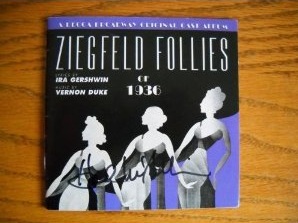Glossary
All | Dance | Other | People |
Showing: All
1904 World Fair: St. Louis World Fair of 1904 - Mr. Edison’s Amazing Hall of Electricity showcased science advancements that startled the imagination a century ago and foretold technology still in place today. It ushered in a new era in which machines began taking over the work of humans, still a hot topic one hundred years later.

Aimee Simple: Aimee Semple McPherson was the first famous Pentecostal evangelist, seeking publicity to broaden the audience for her religious message, using modern technology (including the automobile and radio) -- truly a pioneer in religious history. The Foursquare Gospel Church which she founded is now a movement with more than two million members around the world. But most people know her name mainly for an infamous kidnapping scandal. Aimee Semple McPherson disappeared in May 1926. At first Aimee Semple McPherson was presumed drowned. When she reappeared she claimed to have been kidnapped. Many questioned the kidnapping story; gossip had her "shacked up" in a romantic "love nest," though a court case was dropped for lack of evidence.

Black Bottom: originated in New Orleans as a stamping, swaying "Negro" dance. The words for the original Blackbottom dance by Perry Bradford in 1919 were "Hop down front and then you doodle back/Mooch to your left and then you mooch to your right/Hands on hips and do the Mess Around/Break a leg until you 're near the ground." Musical Producer George White saw the Blackbottom performed in a Harlem nightclub. White bought the music and introduced it to white audiences in his "Scandals of 1926." The dance was then popularized and modified for the ballroom.

Ceylon: Sri Lanka
Charles A. Lindbergh: In 1924, Lindbergh enlisted in the United States Army so that he could be trained as an Army Air Service Reserve pilot. He made the first solo nonstop flight across the Atlantic Ocean on May 20-21, 1927.

Charleston: Scholars of African dance have traced the Charleston to Trinidad and West Africa. In the nineteenth century, black minstrel dancers danced the "patting Juba," a routine of slapping the hands and the knees, thighs, and body in a rhythmic display. Introduced to Broadway in 1923 in the play Running Wild, its popularity flourished. The independent roles of the dancing couple express the newly emancipated attitude of the "flapper."1,
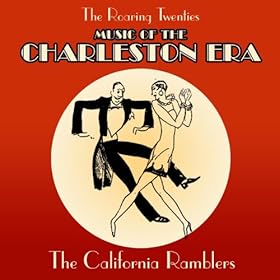
Cherokee: The Cherokees are original residents of the American southeast region, particularly Georgia, North and South Carolina, Virginia, Kentucky, and Tennessee. Most Cherokees were forced to move to Oklahoma in the 1800's along the Trail of Tears. Descendants of the Cherokee Indians who survived this death march still live in Oklahoma today. Some Cherokees escaped the Trail of Tears by hiding in the Appalachian hills or taking shelter with sympathetic white neighbors. The descendants of these people live scattered throughout the original Cherokee Indian homelands.
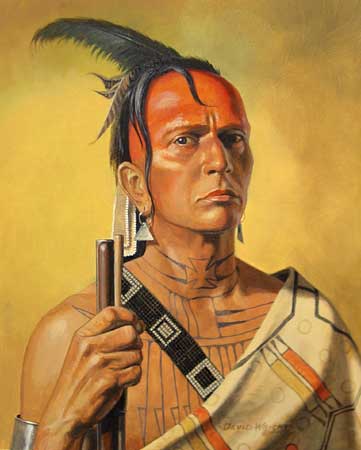
Chimney Sweep: Coal makes a sticky soot which does not all come loose with the use of a brush; chimney edges need scraping where soot builds up. People soon realized that fireplaces and their chimneys needed a cleaning, as a house full of soot and fumes is unhealthy. And so, the necessity of regular chimney sweeping began. Needless to say, the chimney sweep profession has changed since the early Victorian days. During the early 1960′s the switch to other, more convenient forms of heating – gas and electricity in particular, replaced coal as the primary source for central heating. Over the years, the fireplace has emerged from its slumber as merely an architectural decoration into a fully functioning appliance. As the popularity of fireplaces increased, so has the need for chimney sweeps, an old profession that is still growing today.

City Slicker: A person with the values generally associated with urban dwellers, typically regarded as unprincipled and untrustworthy.
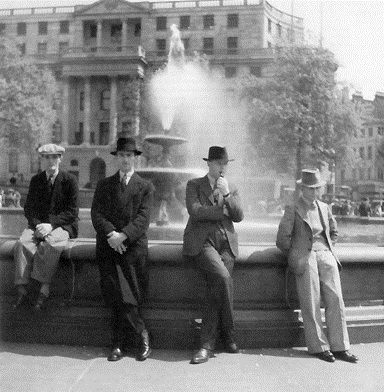
Comanche: The Comanches were fierce warriors who lived on the Southern Plains. The Southern Plains extend down from the state of Nebraska into the north part of Texas.

Cowboy: One who tends cattle or horses; especially, a usually mounted cattle-ranch hand.

Czar Nicholas II: The mounting pressures of World War I, combined with years of injustice, toppled the rule of Tsar Nicholas II in March 1917. Forced to abdicate, he was replaced by a Provisional Government committed to continuing the war. During the Bolshevik revolution, in early morning hours of July 17. 1918, the Tsar, his wife, children and servants were herded into the cellar of their prison house and executed.

Debonair: Adjective 1. (Archaic) Gentle; Courteous 2. a. Suave; Urbane b. Lighthearted; nonchalant

Diphtheria Epidemic: Statistics shows that in the 1920s there were an estimated 100,000 to 200,000 cases of diphtheria per year in the United States, with 13,000 to 15,000 deaths. Effective vaccines were not developed until the discovery and development of sulfa drugs following World War II.
Ed Wynn: Born Isaiah Edwin Leopold 1886-1966. Long-time Vaudeville star. An old-fashioned comedian, who, by recommendation by his son Keenan Wynn, became one of the world's most beloved clowns, and one of the best actors of his time. He was born on November 9, 1886. He performed in the Ziegfeld Follies, and later had a son Keenan in 1916. He later wrote his own shows, then known as the Perfect Fool. In 1941 at age 54, he became a grandfather. He became popular for roles throughout the 1950s and 1960s, best remembered for "The Ed Wynn Show" (1949), and for Mary Poppins (1964) as Uncle Albert, who reflects his old style charm. He continued to perform, until he died in 1966 at age 79.
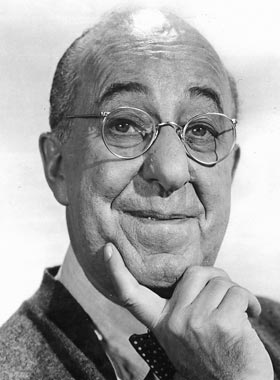
Eddie Cantor: Singer, songwriter ("Merrily We Roll Along"), comedian, author and actor, educated in public schools. He made his first public appearance in Vaudeville in 1907 at New York's Clinton Music Hall. He invented the name "March of Dimes" for the donation campaigns of the National Foundation for Infantile Paralysis (polio), a play on the "March of Time" newsreels. He began the first campaign on his own radio show in January 1938, asking people to mail a dime to the nation's most famous polio victim, President Franklin D. Roosevelt. Other entertainers joined in the appeal via their own shows, and the White House mail room was deluged with 2,680,000 dimes.
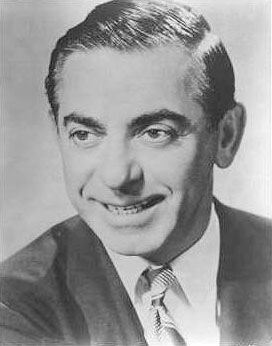
Farmhand: A worker on a farm.
Flapper: (in the 1920s) A fashionable young woman intent on enjoying herself and flouting conventional standards of behavior. By 1913, the "flapper" replaced the Gibson girl and became the new icon for women in the twentieth-century as the new woman. Drinking and smoking, dancing, exposing skin, were some of the traits that came with being a flapper girl. They were thin, flat-chested, and boyish-looking that defied old-fashioned norms. Dorothy Dunbar Bromley, a liberal writer during the 20s, summed up the flapper as "truly modern", "New Style" feminists who "admit that a full life calls for marriage and children" and also "are moved by an inescapable inner compulsion to be individuals in their own right."
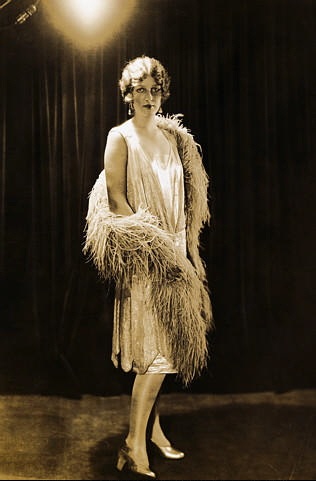
Florenz Ziegfeld: American theatrical producer who brought the revue to spectacular heights under the slogan "Glorifying the American Girl." During the World's Columbian Exposition in Chicago in 1893. The Follies of 1907, modeled on the Folies-Bergère of Paris but less risqué. The revue's combination of semi-nudity, pageantry and comedy was repeated successfully for 23 more years, until the Great Depression ended these annual spectaculars.

Follies Girls: The Ziefeld girls were a product of the famous impresario Florenz Ziegfeld (3/21/1869-1932). Dubbed the "Most beautiful girls in the world" (not even one ugly one). Many of the women who worked with the Ziegfeld shows moved on to become well-known stars and actresses.
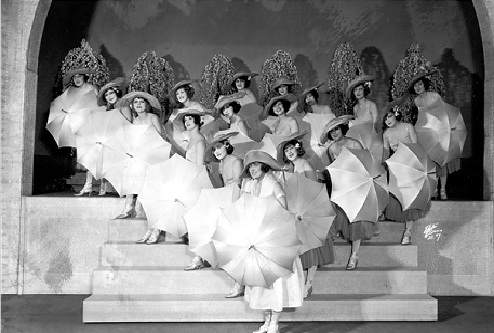
Goucho: A cowboy of the South American pampas.
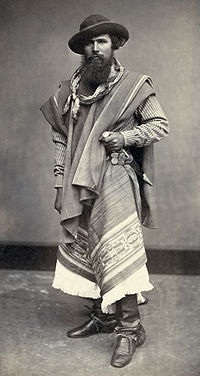
H. Ross Perot: Perot was born on June 27, 1930, in Texarkana, Texas, to an impoverished family. Perot started his own business, Electronic Data Systems, with money given to him by his wife. Today, the company is worth billions of dollars and has more than 70,000 employees. Perot has worked closely with the U.S. government over the past three decades, helping to conduct several rescue missions and prisoner negations with foreign nationals. In 1992, he split from the Republican Party to create the Reform Party. He lost the election then and again in 1996. He remains a philanthropist and often donates to charity.

Havanas: Refers to the tradition of handing out cigars at a baby's birth, particularly at the time of a son's birth. Cuban cigars were and still are considered the best quality cigars. Will Rogers was born prior to the Cuban Missile Crisis, after which trade with Cuba became illegal.
Jack Mulhall: October 7th, 1887 -- June 1st, 1979 A silent-film leading man who made the transition to character actor in the sound era. The genial, good-humored Irishman was one of the highest-paid stars of the teens and twenties, but when his fortune (over a million dollars) was wiped out in the stock crash of 1929, he found himself forced to "stoop" to cliffhanger acting in order to put groceries on the table. Under these circumstances, one would expect Mulhall's portrayals in serials to be rushed, dispirited, and unenthusiastic. But the reverse was true: Jack Mulhall was the bounciest and most energetic player to be found in cliffhangers. Whether playing the hero, the hero's buddy, the hero's adviser, or even (very rarely) the villain, Mulhall was, to use an old but worthy cliche, "the life of the party."
+filesofjerryblake.netfirms.com

Kiwanis: The organization originated in August 1914 in Detroit, Michigan. Kiwanis became international with the organization of the Kiwanis club of Hamilton, Ontario, Canada, in 1916. Until 1988 the organization accepted only men as members. By action of the International Convention in 1987, the rules were changed to admit women as well. The original purpose of Kiwanis was to exchange business between members and to serve the poor. Kiwanis tries to serve children and youth using two approaches. One attempts to improve the quality of life directly through activities promoting health, education, etc. The other tries to encourage leadership and service among youth. In pursuit of the latter goal, Kiwanis sponsors about 7,000 youth service clubs with nearly 320,000 youth members. Kiwanis founded and supports Key Club International. Started in Sacramento, California in 1925, Key Club is the oldest and largest service program for high school students in the world.

Missouri-Pacific RR: Leaders of St. Louis secured a Missouri charter in 1849 for the Pacific Railroad to extend "from St. Louis to the western boundary of Missouri and thence to the Pacific Ocean." The "ground breaking celebration" was held on the July 4, 1851.

New York Times: The Times was established in 1851 as a penny paper that would avoid sensationalism and report the news in a restrained and objective fashion. It enjoyed early success as its editors set a pattern for the future by appealing to a cultured, intellectual readership instead of a mass audience. one of the world’s great newspapers, its strength is in its editorial excellence.
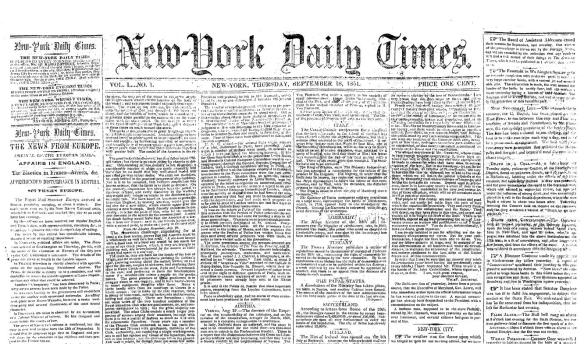
Oklahoma Territory: The Territory of Oklahoma existed for a brief seventeen years, yet its rapid expansion and development made its history unique. Oklahoma became a state on November 16,1907.

Pie in the Sky: A promise of heaven, while continuing to suffer in this life.
Revue: The word "Revue" in the title is used as a double entendre - Noun: A light theatrical entertainment consisting of short sketches, songs, and dances. Review: Noun A formal assessment or examination of something.
Rube: A country bumpkin.
Rudolph Valentino: Rudolph Valentino was an Italian-born American film actor who was idolized as the "Great Lover" of the 1920s. Valentino immigrated to New York City in 1913. In 1918 he went to Hollywood, where he played small parts until he was given the role of Julio in The Four Horsemen of the Apocalypse (1921). He immediately became a star. Valentino's sudden death at the age of 31 caused worldwide hysteria and several suicides.

Sage: 1. a. wise through reflection and experience. b. archaic : grave, solemn. 2. proceeding from or characterized by wisdom, prudence, and good judgment (sage advice)
Scopes Monkey Trial: Darwin vs. The Bible - Tennessee July 1925, sixty-six years after Charles Darwin published his controversial Origin of Species, the debate he'd engendered over humankind's evolution from primates had suddenly reached a fever pitch in this hamlet on the Tennessee River. Efforts to enforce a new state statute against the teaching of evolution in public schools had precipitated the arrest of Dayton educator John T. Scopes. His subsequent prosecution drew international press attention as well as the involvement of the American Civil Liberties Union (ACLU). Scopes Trial by J. Kingston Pierce. Further reading: http://law2.umkc.edu/faculty/projects/ftrials/scopes/evolut.htm
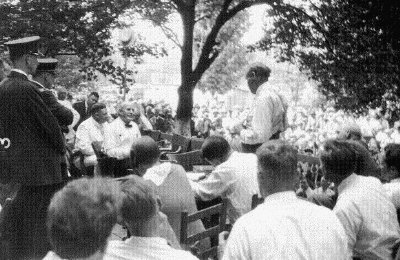
Shim-Sham-Shimmy: The "Shim Sham" or "Sham" was originally a pre tap-dance routine done by vaudeville performers in the early 1900's and consisted of a mixture of standard steps but done in no particular order. The Shim Sham Shimmy is said to be the creation of Willie Bryant and Leonard Reed and was changed to accommodate a larger group in the theaters they were working at the time, some say around 1927. ,
Shirley Temple: Shirley Temple was easily the most popular and famous child star of all time. She got her start in the movies at the age of three and soon progressed to super stardom. Shirley could do it all: act, sing and dance and all at the age of five! Fans loved her as she was bright, bouncy and cheerful in her films and they ultimately bought millions of dollars worth of products that had her likeness on them. Dolls, phonograph records, mugs, hats, dresses, whatever it was, if it had her picture on there they bought it. Shirley was box-office champion for the consecutive years 1935-36-37-38, beating out such great grown-up stars as Clark Gable, Bing Crosby, Robert Taylor, Gary Cooper and Joan Crawford. By 1939, her popularity declined. Although she starred in some very good movies like Since You Went Away (1944) and the The Bachelor and the Bobby-Soxer (1947), her career was nearing its end. Later, she served as an ambassador to Ghana and Czechoslovakia. It was once guessed that she had more than 50 golden curls on her head.

Six Sisters of Betty: Betty Blake's six sisters were named Cora, Anna, Waite, Zuleki, Theodocia and Virginia. She also had two brothers: John and James.
Six Sisters of Will: Clement Rogers had six daughters - Sarah Clementine, May, Mary America, Zoe, Elizabeth and Maud Ethel. He also had three sons: Will, Robert Martin and Homer.
Sooners: soon·er [soo-ner] noun 1. a person who settles on government land before it is legally opened to settlers in order to gain the choice of location. 2. a person who gains an unfair advantage by getting ahead of others.

Stock Market Crash: On the morning of Thursday, October 24, 1929, stock prices plummeted. Vast numbers of people were selling their stocks. Margin calls were sent out. People across the country watched the ticker as the numbers it spit out spelled their doom. The ticker was so overwhelmed that it quickly fell behind. A crowd gathered outside of the New York Stock Exchange on Wall Street, stunned at the downturn. Rumors circulated of people committing suicide.

Texas Jack: Born July 27, 1846, Texas Jack was made famous during the late 1800's and early 1900's not only because of his career on the stage but as the hero of many "dime novels" which were popular at the time. Many of his true-to-life adventures were fictionalized in those exciting little books. He died at age 33.

The Will Rogers Hospital and Institute: Founded in 1977, Will Rogers Institute's mission is to perpetuate the memory of Will Rogers by promoting and engaging in medical research pertaining to cardio-pulmonary diseases and educating the general public on topics of health and fitness. Most of the Will Rogers Institute-sponsored research is conducted at our four research hospitals Burke Rehabilitation Hospital, New York Hospital/Cornell Medical Center, University of Southern California, and University of California, Los Angeles. The Institute also sponsors research fellowships in lung diseases at many major universities and medical centers throughout North America, thereby helping to train future leaders of lung research to serve our children and future generations. See http://www.wrinstitute.org/
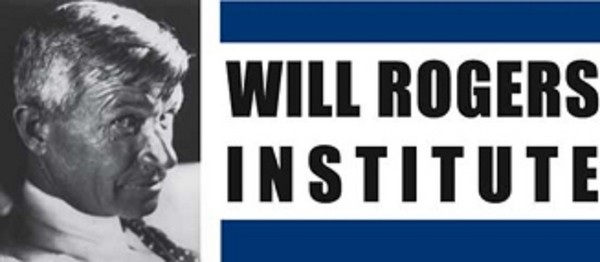
Turkish Delight: noun a jellylike or gummy confection usually cut in cubes and dusted with sugar

Tutelo: One of the eastern Siouan tribes, formerly living in Virginia and North Carolina, but now extinct. The image is of Nikonha - the last full-blooded Tutelo. The photo was taken by researcher Horatio Hale in 1870. Nikonha was 106 at the time the photo was taken. http://www.victorianvilla.com/sims-mitchell/local/native/redis.htm
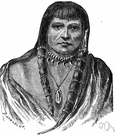
Vacuum tube: An electron tube from which all or most of the gas has been removed, permitting electrons to move with low interaction with any remaining gas molecules.
Vaudeville: 1) a light often comic theatrical piece frequently combining pantomime, dialogue, dancing, and song 2) stage entertainment consisting of various acts (as performing animals, comedians, or singers)
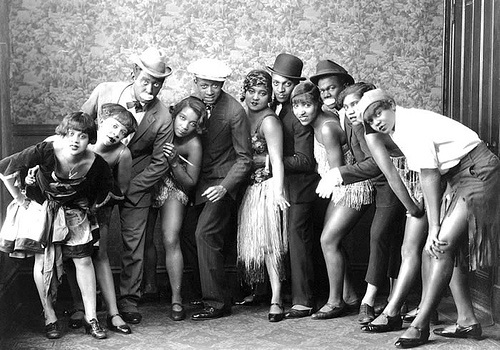
W.C. Fields: By nineteen he was billed as "The Distinguished Comedian" and began opening bank accounts in every city he played. At age twenty-three he opened at the Palace in London and played with Sarah Bernhardt at Buckingham Palace. He starred at the Folies-Bergere (young Charles Chaplin and Maurice Chevalier were on the program). He was in each of the Ziegfeld Follies from 1915 through 1921. He played for a year in the highly praised musical "Poppy" which opened in New York in 1923. In 1925 D.W. Griffith made a movie of the play, renamed Sally of the Sawdust (1925), starring Fields. Pool Sharks (1915), Fields' first movie, was made when he was thirty-five. He settled into a mansion near Burbank, California and made most of his thirty-seven movies for Paramount. He appeared in mostly spontaneous dialogs on Charlie McCarthy's radio shows. In 1939 he switched to Universal where he made films written mainly by and for himself. He died after several serious illnesses, including bouts of pneumonia.
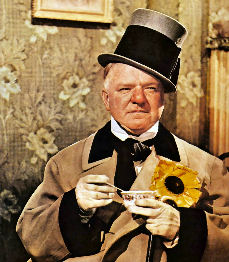
Wild West Show: Will Rogers returned home after the tour, but, in 1901, he was off once again-this time to Buenos Aires, Argentina. Realizing that "Argentina was not for him," Rogers accepted a job tending cattle on a boat sailing for South Africa. Not long after his arrival, Rogers drove a herd of mules from Durban to Ladysmith. Luck was finally on his side-Texas Jack's Wild West Show was in town. Rogers immediately signed on with Texas Jack as a trick roper. "The Cherokee Kid" was an instant success--Rogers was "the center of attraction" When Rogers decided to return home in 1903, Texas Jack wrote "as glowing a recommendation" as a young performer could ask for.

Will Rogers Newspaper Column: Perhaps none of his writings made Will Rogers more famous than his Daily Telegrams. Syndicated in more than 500 newspapers, including at least one in every major city, these short daily columns of down-to-earth, humorous takes on current events, everyday issues, and life's questions reached millions of readers throughout the country. First published in the New York Times in late July 1926 and continuing until Rogers' death in August 1935, they would through the years shape public opinions, impact government policies, and influence peoples' perceptions. Readers were known to read first Will's Daily Telegram each morning, then the rest of the newspaper.
Will Rogers Radio Show: Known for his quips and own brand of storytelling, The Will Rogers Program allowed him to spread his own word across the country. All the while, he donated the sponsorship money to charity.
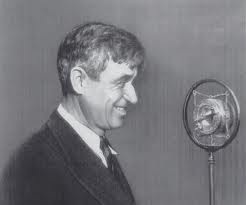
Ziegfeld Follies: A series of elaborate theatrical productions on Broadway in New York City from 1907 through 1931. They became a radio program in 1932 and 1936 as The Ziegfeld Follies of the Air.
